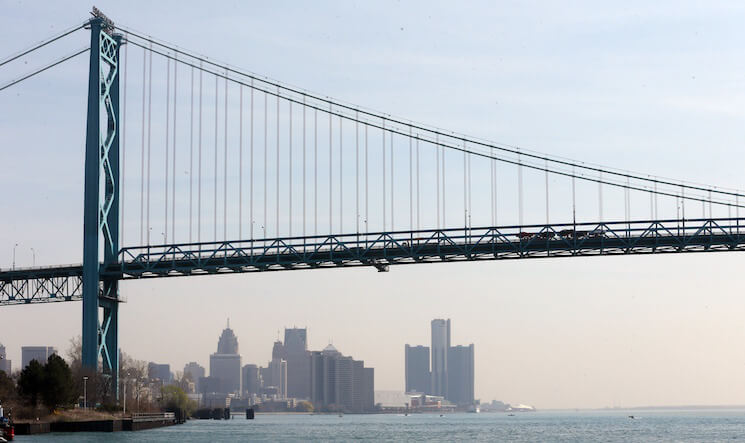The Great Recession left struggling Detroiters even worse off

From skyrocketing unemployment rates to shrinking household expenditures, the fallout of the Great Recession of 2007-2009 rattled the U.S. economy. A new working paper released today by the Washington Center for Equitable Growth quantifies just how the Great Recession affected a group of already vulnerable people—low- and moderate-income households in the Detroit metropolitan area.
This new research by Equitable Growth grantee and University of Michigan professor of law Michael Barr and University of Michigan graduate student of economics Daniel Schaffa uses two different local surveys to measure the effects of the recession. For pre-recession data, they turn to the Detroit Area Household Financial Services Study, which exclusively focused on low- and moderate-income families between 2005 and 2006. For post-recession outcomes, the authors cite the 2009-2010 Michigan Recession and Recovery Study, a survey designed to to assess comprehensively the financial situations of Detroit-area households, using some of the same questions asked in the earlier Detroit Area Household Financial Services Study.
When matched, these targeted surveys provide a more nuanced characterization of pre- and post-recession employment, household income, housing, and financial health than other frequently-used datasets such as the Survey of Consumer Finance, Panel Study of Income Dynamics, or the RAND American Life Panel. Ultimately, the two local surveys helped Barr and Schaffa calculate the differences in pre- and post-recession levels on a number of outcomes for households in Census block groups with less than 80 percent of the Detroit metro area median income.
Barr and Schaffa find, for example, that after the Great Recession the median duration of unemployment for low- and moderate-income households increased from 5.2 months to 9.5 months. Meanwhile, the employment rate—the share of the working-age population with a job—dropped by 9.0 percentage points. Median household income deteriorated, falling from $24,000 pre-recession to $19,000 post-recession. Income for African American households declined even more dramatically, with average household income declining by more than $7,000 over the period.
Housing statistics were equally dismal. Both homeownership rates and home values fell. The median home value saw a $50,000 reduction.
The paper provides data on a range of other household outcomes, including the change in rates of home foreclosures, mortgages payments, health care access, payday lending, overdraft usage, and even marriage—all broken down by gender, race, and educational attainment. These measures all tell the same story: For low- to moderate-income families in Detroit–those who arguably started the worst off–the Great Recession had pernicious effects. Though these findings are consistent with what we might expect, Barr and Schaffa show the magnitude of just how devastating the Great Recession was for already disadvantaged households.
So what do these results mean for policy? Barr and Schaffa propose designing policies to help shield these vulnerable families against the effects of future recession. Strengthening safety net programs and improving access to financial services can help ensure those who are already struggling to make ends meet don’t lose even more.
